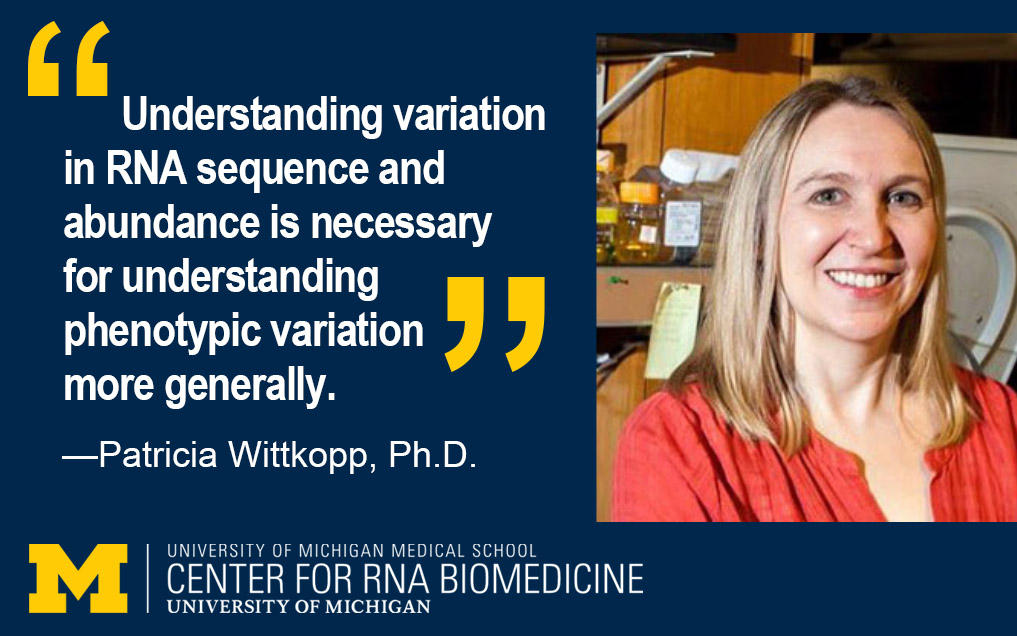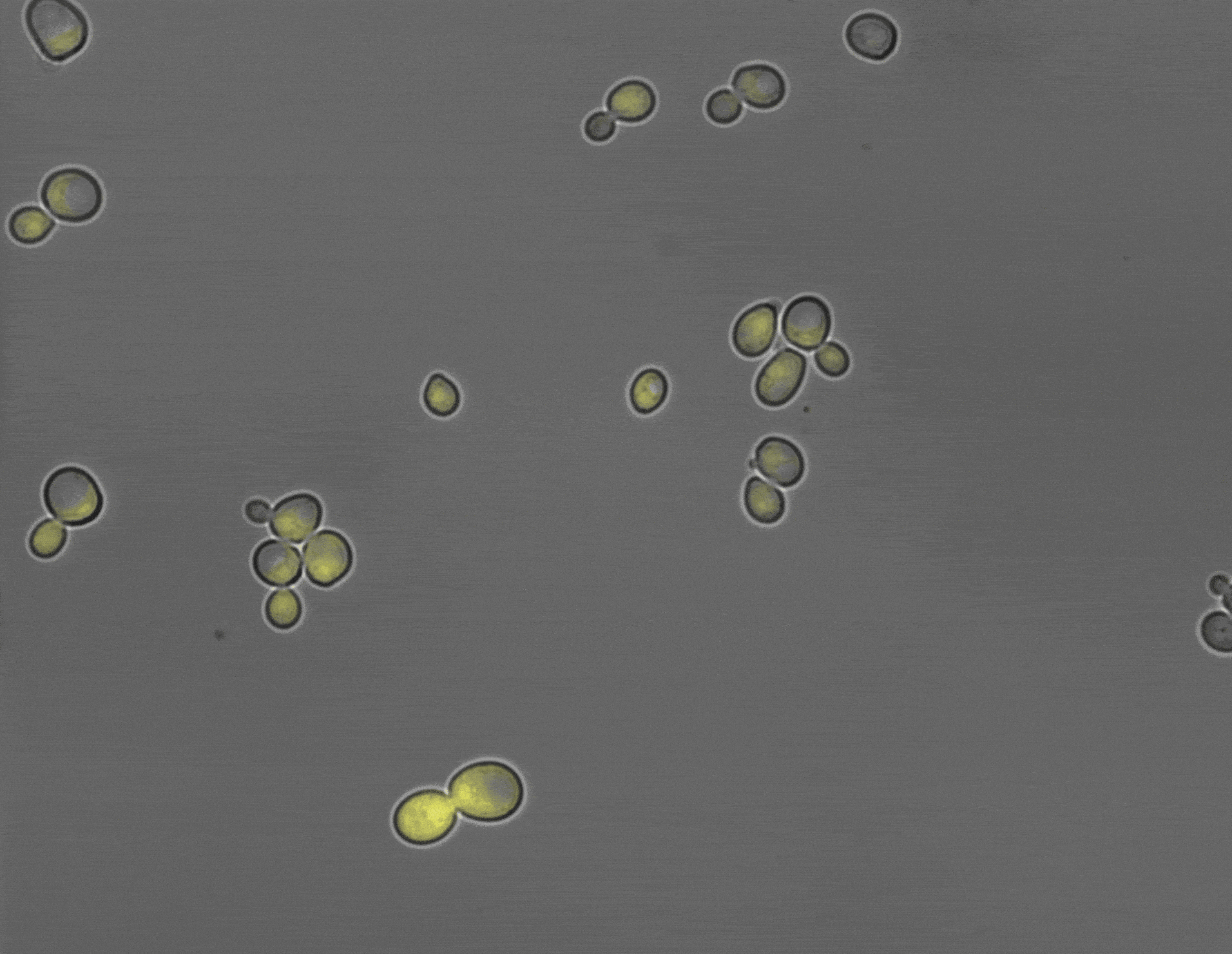RNA Featured Researcher – Patricia Wittkopp, Ecology & Evolutionary Biology and Molecular, Cellular, & Developmental Biology

Patricia Wittkopp, Ph.D.
Arthur F. Thurnau Professor and Sally L. Allen Collegiate Professor of Ecology & Evolutionary Biology and Molecular, Cellular & Developmental Biology, College of LSA
My research aims to understand the genetic, molecular, and evolutionary mechanisms responsible for phenotypic differences within and between species. Changes in gene expression are a major source of these differences, and we study the genetic changes responsible for differences in gene expression, including understanding how regulatory networks are impacted to alter expression.
• What is the role of RNA in your research?
We focus primarily on the regulation of transcription, making studies of RNA a central component of our work.

This animation shows cells of baker’s yeast (Saccharomyces cerevisiae) expressing a Yellow Fluorescent Protein, which we use as a read-out of gene expression in living cells. Image by Fabien Duveau
• Who/what brought you to science?
An outstanding 10th grade Biology teacher taught a unit on genetics that showed me for the first time that science was a way of learning about the natural world rather than a collection of facts, and I was hooked. The love for genetics sparked by this teacher continues to drive my passions for research today.
• What brought you to the University of Michigan?
I grew up about 30 miles from UM and was excited to move to Ann Arbor for my undergraduate studies. After completing my PhD at the University of Wisconsin-Madison and spending time at Cornell University for postdoctoral experience, I was thrilled to return to UM to start my faculty career. UM’s strengths in many different areas of science, combined with a culture that values interdisciplinary work, made it a great place to develop my independent research program.
• What advice would you give to students who’d like to get more involved in research?
To seek out research experiences early and to be intellectually curious and open to working on a variety of topics. Interest in a subject often grows the more you learn about the topic.
• Are there any opportunities for students to engage in your projects, currently or in the future?
I enjoy working with students at all levels. Because of the pandemic, however, space in my research lab is much more limited than usual and it is challenging to provide the hands-on training new students need.
-
- What skills would they need? Basic chemistry skills for making solutions in the lab are critical, but we usually expect to teach new students the skills they need to perform the specific experiments we use in the lab.
- What could they expect to learn? To read the primary literature, develop scientific questions, and to design, conduct, and analyze experiments.
• What profession other than your own would you enjoy, or what is your favorite hobby?
I have wanted to be a genetics researcher since high school, and am thrilled to have realized this dream. Outside of science, I enjoy spending time with my family, riding bikes, and playing volleyball.
